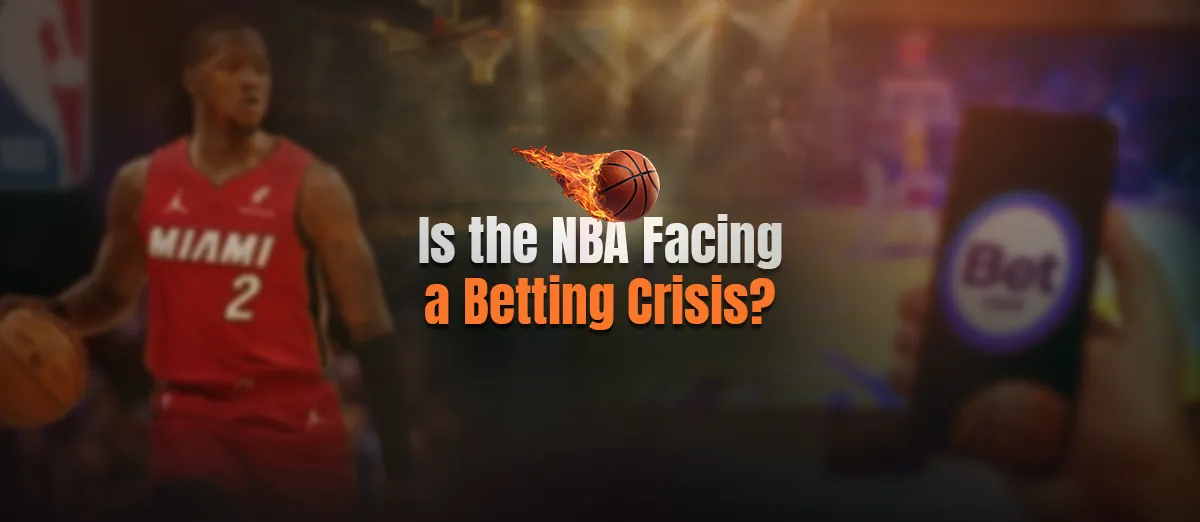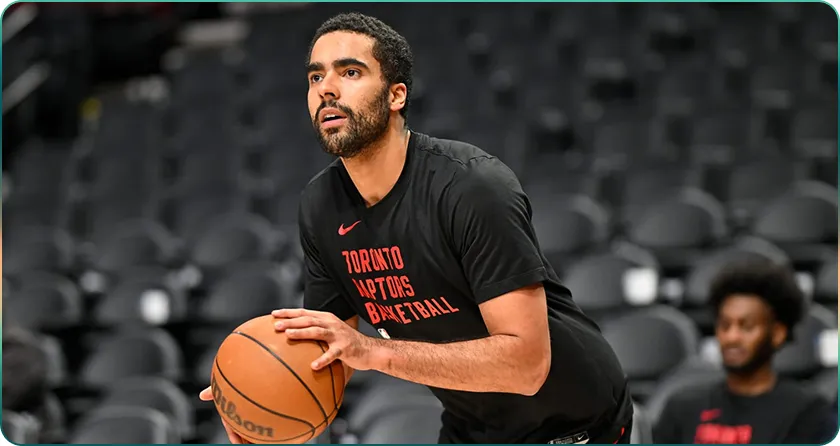NBA Betting Scandals Explained – Players, Probes, and the Integrity Question

The NBA is once again under scrutiny, as federal prosecutors turn their attention to high-profile players, including Terry Rozier and Malik Beasley, after sportsbooks flagged unusual betting patterns around their performances. According to ESPN, the U.S. Attorney’s Office in the Eastern District of New York is investigating whether Rozier may have influenced his shot selection in a March game to benefit bettors, while Beasley – fresh off a standout season – is also under investigation, causing his mooted $42 million contract with the Detroit Pistons to stall.
This wave of scrutiny comes in the wake of one of the most dramatic betting scandals in recent NBA history: Jontay Porter was given a lifetime ban in 2024 after it was revealed he shared confidential health information with bettors and placed prop bets – some against his own performance – by leveraging insider knowledge during games. That case resulted in criminal charges for the player and several other implicated bettors, making Porter the first man to be banned from the NBA for gambling since Jack Molinas in 1954.
These incidents unfold against a backdrop of explosive growth in legal sports betting in the United States. Since the landmark Supreme Court decision in 2018, wagering on NBA games has become embedded in broadcasts, sponsorships and fan culture as the league has entered lucrative partnership deals with DraftKings, FanDuel and dozens of sportsbooks nationwide.
And yet, this is far from the first time basketball has faced the shadow of betting scandals. From referees to players, from historical point-shaving rings to the infamous Tim Donaghy scandal of 2007, corruption has periodically threatened to undermine what fans assume is a fair contest. With multiple investigations now pointing to players influencing prop markets, the question becomes urgent: is the NBA wrestling with isolated incidents, or are these the first rumblings of a sport in crisis?
Jontay Porter: The Smoking Gun
If there was any doubt about the seriousness of sports betting violations in the NBA, the case of Jontay Porter ended it. In April 2024, the league handed Porter – then a two-way player for the Toronto Raptors – a lifetime ban, its harshest disciplinary action since the league’s inception. It was a moment that jolted both the basketball world and the wider betting industry. Porter wasn’t just dabbling in casual bets. He was, according to league investigators, conspiring with gamblers, feeding them insider information, and even manipulating his own play on the court.
The facts, as laid out by both the NBA and later confirmed in legal filings, were stark. Porter had allegedly told associates that he planned to leave at a certain point during games due to a supposed injury or illness. These leaks allowed his co-conspirators to place prop bets on the under for his stats, bets that would only cash if Porter underperformed. On at least one occasion, those bets hit perfectly. In a January game, Porter played just four minutes before exiting, citing injury. The suspiciously timed drop-off in activity led sportsbooks to flag the bets and ultimately alerted regulators to the irregularity.
More damningly, Porter had also placed bets himself, including wagers on Raptors games, something explicitly prohibited by league rules, regardless of whether the bet is for or against your own team.
The fallout was swift. Not only was Jontay Porter banned from the league for life, but a federal investigation was launched, and criminal charges were expected. His co-conspirators, too, found themselves in legal jeopardy. Evidence has since emerged showing that Porter was in serious debt and engaged a number of professional bettors in the scheme to help pay back the money he owed them.
Yet the case wasn’t just about one rogue athlete. It exposed a potential fault line in the NBA’s growing entanglement with sports betting. As the league continues to deepen its partnerships with sportsbooks, the question looming in the background remains: how easy is it for players to influence bets without detection, and how many are trying?

NBA Prop Betting - Micro-Markets, Macro Problems
Basketball is a sport of moments. Unlike football or baseball, where much of the action is shared among many players and plays evolve over time, basketball is fast, fluid, and, crucially, highly stat-driven. This makes it ideal for micro-betting, a form of gambling that focuses not on the final score, but on granular events: how many points a player will score in a quarter, how many assists they’ll record, or whether they’ll hit a free throw on their next trip to the line.
This kind of wagering – often called prop betting – has exploded in popularity, particularly as legal sportsbooks look for new ways to engage fans and keep them betting throughout a game. But this boom comes with a troubling side effect: it’s made it easier for players to subtly manipulate outcomes.
Unlike point-shaving scandals of old, modern-day fixers don’t need to influence the result of the game. They just need to ensure that one player doesn’t rebound as much as expected, or that they miss a certain number of three-pointers. In a sport where rotations, injuries, and coaching decisions can already swing stat lines wildly, a player underperforming slightly can easily fly under the radar. Unless, of course, someone is watching the money.
This is exactly how the Jontay Porter scandal came to light. Bookmakers noticed sudden spikes in betting volume on very specific stat lines. In today’s digital betting environment, those spikes can be tracked almost in real time. When a player exits early and bettors win big on a long-shot under bet, regulators and sportsbooks take notice.
Still, many worry that this kind of manipulation is hard to detect until it becomes egregious. And with more and more states legalizing sports betting and more platforms offering real-time props, the temptation for low-paid players, benchwarmers, or those on short-term contracts to profit from inside information or quiet underperformance is only going to grow.
In other words, the NBA’s betting problem isn’t necessarily about big stars throwing games; it’s about how easily the little things can be fixed without anyone noticing.
Why NBA Betting Scandals Aren’t Anything New?
The NBA’s current gambling woes aren’t new; they’re just the latest in a long and uneasy relationship between basketball and betting. One of the most infamous episodes came in 2007, when referee Tim Donaghy was exposed for betting on games he officiated and allegedly passing on inside information to gambling associates. Donaghy resigned after the scandal broke, and he later served time in federal prison. It remains one of the most damaging events in the league’s history, not only because it involved a referee – someone entrusted to uphold the integrity of the game – but because it called into question the fairness of entire seasons.
Donaghy claimed he wasn’t alone. In post-scandal interviews and a subsequent memoir, he alleged that the NBA influenced which teams advanced in the playoffs, and that biased officiating was routine, claims the league has strongly denied but which continue to cast a shadow. The NBA swiftly implemented reforms in the aftermath, tightening referee oversight and establishing clearer codes of conduct.
But the Tim Donaghy affair wasn’t the league’s first scandal, either. College basketball – which feeds directly into the NBA talent pool – has long struggled with corruption, from the 1951 point-shaving scandal involving players at CCNY and other schools, to more recent cases of underground payments and recruiting violations. While these issues differ from modern prop-betting manipulations, they reflect a constant vulnerability: players and officials, especially those underpaid or under pressure, are susceptible to the wrong incentives.
More recently, the case of Jontay Porter in 2024 echoed these past scandals. Unlike Donaghy, Porter was an active player and, unlike in 2007, this wasn’t about vague claims or mob connections. It was cold, hard data and suspicious betting activity that tipped off regulators. And while Donaghy was a rogue referee, Porter’s alleged actions took place in a much more permissive era for sports betting.
In some ways, that’s the most worrying development of all. The league may no longer be turning a blind eye, but the opportunities to cheat have multiplied, and they’re far harder to spot until it’s too late.
Manipulating Sports Outcomes through Prop Bets
Since the Supreme Court struck down the federal ban on sports betting in 2018, gambling has become deeply embedded in American sports culture. For the NBA, this has meant multi-million dollar partnerships with sportsbooks, live betting odds integrated into broadcasts, and a flood of prop bets that let fans (and players) wager on nearly every facet of the game, from who scores first to how many rebounds a player will record in the first quarter.
But this unprecedented access to betting markets has come with a downside: a growing number of ways for players and insiders to quietly manipulate outcomes. Unlike betting on a final score – which would require multiple people to alter the course of a game – prop bets can be influenced by a single missed free throw or a sudden “injury substitution.” That’s what made the Jontay Porter case so alarming: the Toronto Raptors forward was allegedly removed from games early to help his betting co-conspirators hit the under on his stat lines.
While the NBA has strict rules forbidding players and staff from betting on any league events, enforcement is difficult. Modern players are surrounded by agents, friends, family, and hangers-on, some of whom may have access to privileged information and none of whom are subject to league rules. As bookmakers add more granular markets, it becomes easier to exploit tiny shifts in performance or timing, especially when most bets fly under the radar until patterns emerge.
It’s not just players, either. Coaches, trainers, medical staff, and team insiders often know who’s dealing with injuries before the public does, and, in a betting market driven by information, even a hint of inside knowledge can be gold dust.
The NBA has embraced gambling as a new revenue stream. But in doing so, it has exposed its players to more temptations and regulators to far more headaches.
Betting Data, Surveillance, and the Rise of Integrity Tech
As legal sports betting as well as online casinos in the USA spread rapidly, the spotlight on athletes has intensified, not just from fans or fantasy leagues, but from algorithms. The very systems that power the expansion of gambling in sport are also being weaponized to catch those who might be exploiting it. In the NBA’s recent betting controversies – including Porter’s lifetime ban and recent investigations involving Rozier and Beasley – it wasn’t a whistleblower or an investigative journalist that first raised red flags. It was the data.
Behind the scenes, a growing industry of sports integrity firms has become crucial to policing the line between play and corruption. Companies like Sportradar, Genius Sports and US Integrity monitor betting markets across the globe in real-time. They look for anomalies: an unexpected surge in bets on a particular prop, movement in odds that doesn’t track with public information, or betting volumes that defy historical patterns. These digital fingerprints can indicate something’s not right and, in some cases, have directly led to investigations like those we’re now seeing in the NBA.
This system is increasingly central to the leagues themselves. The NBA partners with integrity firms to safeguard its product, just as the NFL, MLB, and NCAA do. These companies are not just passive monitors; they are active investigators, sometimes working with federal authorities. But their power also raises serious questions.
One issue is privacy. In the Porter case, investigators allegedly uncovered texts sent during games, communications that helped build the case for a lifetime ban. But if the price of catching corruption is monitoring a player’s every move, both on and off the court, are we moving into territory that feels less like sports and more like surveillance?
Then there’s the issue of consistency. The United States does not have a single national regulator for sports betting. Instead, each state governs its own system, with different rules, reporting standards, and levels of enforcement. A suspicious betting pattern flagged in New Jersey might not show up in California. Some states require sportsbooks to report integrity concerns. Others don’t. The rise of offshore sportsbooks complicates things further: bets placed in unregulated markets often fly under the radar of these monitoring firms, creating gaps in what should be a unified net.
And while this system is powerful, it’s reactive by nature. It doesn’t stop a fix; it just tries to catch it. Critics argue that relying on betting data to identify corruption might be like using smoke to track a fire: by the time you see it, the damage is already done.
There’s also a more philosophical tension emerging. When the NBA, like other leagues, embraces gambling revenue, it also invites a logic where every moment is a betting opportunity, a micro-event that can be wagered on, scrutinized, and manipulated. Players aren’t just performers; they’re data points. Their value can spike or crash based on performance, health, or even mood. In such a system, suspicion becomes ambient. Was that missed free throw just a bad shot, or something more?
The NBA’s expanding integrity efforts are necessary in this new landscape. But as the lines between gambling, entertainment, and surveillance blur, fans and athletes alike are forced to reckon with a new reality: sport isn’t just being watched; it’s being tracked. And in that world, the margin for error and the space for trust are both shrinking, fast.
An Inevitable Future for the NBA?
The recent wave of NBA betting scandals – from Porter’s lifetime ban to the current investigations into players like Rozier and Beasley – may feel like a crisis, but in many ways, it was foreseeable. In fact, it even has a slight air of inevitability about it.
Since the Supreme Court overturned PASPA in 2018, legal sports betting has spread to more than 30 U.S. states. For professional sports leagues like the NBA, once wary of gambling’s corrosive potential, the tide has turned. Teams now have official betting partners. Ads for sportsbooks line arenas and halftime shows. Even NBA Commissioner Adam Silver, who once called for the legalization of sports betting, has described it as a way to bring transparency and regulation to what had long been an illicit, underground economy.
But the very forces driving this commercial explosion are also exposing the fault lines. Athletes, many of them young and immersed in gambling-saturated environments, now operate within a framework where betting is part of the entertainment ecosystem. Fans can bet on everything from the outcome of a game to whether a player grabs a rebound in the first quarter, and players are acutely aware of this.
In that context, the temptation to manipulate performance, leak information, or even place bets through proxies is not just a moral failing. It’s a structural risk built into the modern game, and it highlights the wider risks of problem gambling, something both athletes and fans face. That’s why responsible gambling practices remain essential in any betting environment.
The NBA has responded with bans, investigations, and partnerships with integrity firms. But the question remains: is this enough? As betting markets become more granular and accessible, and as the industry’s profits swell, so too will the opportunities – and incentives – to cheat.
What’s clear is that match fixing, once seen as the domain of shady referees or rogue gamblers, now threatens the credibility of mainstream professional sports. And basketball, with its fast pace, small teams, and micro-events, is particularly vulnerable. One missed free throw, one "tweaked" ankle, one underscored rebound line: these moments now carry financial weight far beyond the scoreboard.
There’s no turning back the clock. Legal betting is here to stay. The challenge for the NBA – and all of sport – is to find a way to live with it. That means better education for players, clearer regulations, and robust enforcement. But it also requires a cultural reckoning: how do you protect the integrity of a game when the game itself has become a market?
Because in the end, the future of basketball may not just depend on talent, teamwork, or coaching. It may depend on whether the sport can maintain the one thing money can’t buy: trust.



Review this Blog
Leave a Comment
User Comments
comments for NBA Betting Scandals Explained – Players, Probes, and the Integrity Question